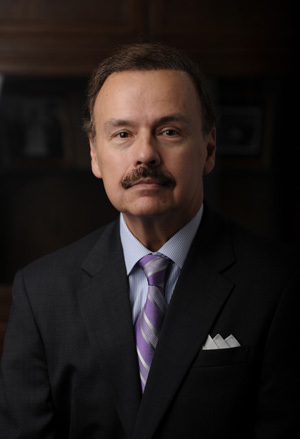
With charges expected to be filed soon against Boston Marathon bombing suspect, Dzhokhar Tsarnaev, terrorism law expert and former federal prosecutor Jimmy Gurulé, professor of law at the University of Notre Dame, says he likely will face multiple charges of violating federal terrorism statutes.
“I expect him to be charged with ‘use of weapons of mass destruction;’ ‘acts of terrorism transcending national boundaries;’ and ‘bombing of places of public use, government facilities, public transportation systems and infrastructure facilities,’” says Gurulé, also a former assistant U.S. attorney general and former undersecretary for enforcement for the U.S. Treasury Department.
Because the Boston Marathon terrorist attacks resulted in death, Gurulé says each statute authorizes the death penalty, but he isn’t convinced that will happen.
“The imposition of the death penalty is rare in federal cases,” he says. “In the post-Gregg era (reaffirmed the Supreme Court’s acceptance of the death penalty in the U.S.), the death penalty has only been imposed in three federal cases, most recently in 2003. Therefore, most federal prosecutors lack experience in prosecuting death penalty cases, which could benefit Tsarnaev.”
Meanwhile, some lawmakers have called for the bombing suspect to be declared an “enemy combatant” so that he may be questioned without a lawyer and other protections of the criminal justice system.
“Despite claims to the contrary, not every person who commits an act of terror against the United States is an ‘enemy combatant’ who may be lawfully detained and tried before a military commission,” Gurulé says. “Recent pleas by members of Congress to detain Tsarnaev as an ‘enemy combatant’ are misguided and reflect a fundamental misunderstanding of the meaning of the term. According to a 2009 Department of Justice memo, the Obama administration has taken the view that a person can be detained as an ‘enemy combatant’ who is part of, or substantially supported, the Taliban, al Qaeda or associated forces that are engaged in hostilities against the United States or its coalition partners. ’Hostilities’ is described as any armed conflict subject to the laws of war.
“There is no evidence that Tsarnaev fits this profile,” Gurulé says, “and, while there is some speculation that his older brother Tamerlan Tsarnaev might have been inspired by foreign terrorist organizations operating in Chechnya or other radical jihadists, the U.S. is not involved in an armed conflict with these individuals or terrorist groups. Further, there is no evidence that the Tsarnaev brothers were operating under the direction and control of these terrorist groups or individuals. Therefore, the Obama Justice Department made the right call to prosecute Dzhokhar Tsarnaev in a civilian criminal court.”
Gurulé served as an assistant federal prosecutor in Los Angeles and was appointed by President George H.W. Bush as assistant attorney general. He was appointed by President George W. Bush to serve as undersecretary for enforcement for the U.S. Department of the Treasury.
Gurulé teaches “The Law of Terrorism” at Notre Dame and is co-author of “Principles of Counter-Terrorism Law.”
Contact: Jimmy Gurulé, 574-631-5917 or gurule.1@nd.edu